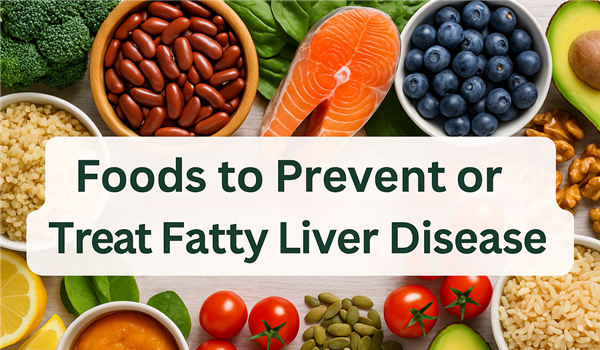Fatty Liver diet nutrition support

Patient Information Leaflet: Foods to Prevent or Manage Fatty Liver Disease
Kensington Medical Centre – Belfast
⸻
What Is Fatty Liver Disease?
Fatty liver disease happens when extra fat builds up in your liver. It’s often linked to being overweight, having high blood sugar, or drinking too much alcohol. Over time, it can lead to liver damage — but with the right diet and lifestyle, it can often be reversed or improved.
⸻
Goals of a Liver-Friendly Diet
• Reduce liver fat
• Improve liver function
• Support weight loss if needed
• Lower blood sugar and cholesterol
⸻
Best Foods to Help Prevent or Treat Fatty Liver
1. Vegetables and Fruits
Rich in antioxidants, fibre, and low in calories.
Examples: spinach, broccoli, carrots, apples, berries, oranges (aim for 5 portions a day)
2. Wholegrains
Support stable blood sugar and digestion.
Examples: oats, wholegrain bread, brown rice, quinoa, barley
3. Lean Protein
Helps build and repair tissues without adding fat.
Examples: skinless chicken, turkey, tofu, fish, eggs, legumes
4. Healthy Fats
Support heart and liver health.
Examples: olive oil, avocado, nuts (almonds, walnuts), seeds (flax, chia), oily fish
5. Low-Fat Dairy or Alternatives
Provides calcium without extra saturated fat.
Examples: low-fat yoghurt, skimmed milk, unsweetened plant-based milks
6. Fibre-Rich Foods
Help reduce fat buildup in the liver.
Examples: beans, lentils, peas, whole fruits, vegetables, wholegrains
⸻
Foods and Drinks to Limit or Avoid
• Sugary drinks and snacks – including fizzy drinks, sweets, pastries
• Refined carbs – white bread, white rice, sugary cereals
• Fried and fast foods – high in unhealthy fats
• Alcohol – even small amounts can worsen liver damage
• Red and processed meats – choose lean or plant-based proteins instead
⸻
Helpful Tips
• Choose grilled, baked, or steamed foods instead of fried
• Avoid skipping meals and aim for balanced, regular eating
• Drink plenty of water – at least 6–8 glasses a day
• Aim for gradual weight loss if overweight (1–2 lbs per week is safe)
• Be active – even walking 30 minutes a day helps
• Read food labels and choose items low in sugar, fat, and salt
⸻
When to See a Doctor
Speak to your GP if you:
• Have been diagnosed with fatty liver or are at risk (e.g. diabetes, obesity)
• Are unsure what to eat for liver health
• Notice fatigue, upper right abdominal discomfort, or weight changes
• Want support for weight loss or alcohol reduction
Your doctor may refer you to a dietitian or liver specialist.
⸻
For more information, visit www.nhs.uk/conditions/fatty-liver-disease
This leaflet is for general information only. Please speak to your healthcare provider for advice specific to you.
Medical Disclaimer
The dietary advice and information provided in this leaflet are for general guidance and educational purposes only. They are not intended to replace personalised advice, diagnosis, or treatment from a qualified healthcare professional.
If you have a medical condition, are taking medication, are pregnant or breastfeeding, or have specific dietary needs or food allergies, you should consult your GP, dietitian, or another healthcare provider before making significant changes to your diet.
Following general dietary recommendations without proper medical supervision may not be suitable for everyone and could result in unintended health effects. Always seek individualised medical advice for your personal health circumstances.
Page created: 01 June 2025